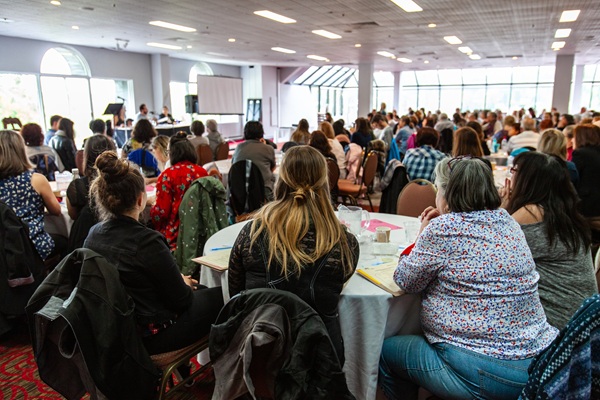Can You Get Workers' Comp If You're Hurt At a Mandatory Work Event?

In Pennsylvania, work-related injuries outside the office may still qualify for compensation
You showed up, participated, and followed instructions at work. Now you’re injured, all because of a “mandatory” work event that wasn’t even part of your regular job duties. It could have occurred at a corporate retreat, a mandatory training seminar, or an off-site team-building event. You may wonder if you can still get workers' comp in Pennsylvania if you weren't technically at work.
The short answer is yes, sometimes. But as with most things in workers’ compensation, it depends on the details. Pennsylvania law does offer protection in many of these situations, especially if the event was truly mandatory or served your employer’s interests. Here's how workers’ comp applies in these scenarios and what you can do if you’re hurt at a work-related event outside your usual job setting.
What does “work-related” really mean under the law?
Pennsylvania’s workers’ compensation system is designed to cover injuries that happen in the course and scope of your employment. This means injuries that occur while you’re doing something for work, even if you’re not on the clock or inside your usual workplace.
This definition gets a little murky when it comes to off-site or non-traditional work functions. To figure out whether your injury is covered, the state looks at several factors, including:
- Where the injury happened
- What was the reason you had to be there
- Whether your employer required or encouraged your participation
- Whether your employer benefited from your presence or activity
If it’s mandatory, it’s probably covered.
Let’s say you were required to attend a weekend leadership retreat or a day-long safety training at an off-site facility. Even if it wasn’t your usual job duty, if your employer made attendance mandatory, there’s a strong argument that the event is within the scope of employment, and so is the injury.
For example, if you twisted your ankle during a team-building exercise or suffered a back injury lifting boxes during a training demo, that could very well be considered a work-related injury under Pennsylvania law. The fact that the event wasn’t optional and your employer had control over the activity works in your favor.
What about optional events or social outings?
Holiday parties, charity fun runs, employee picnics, or happy hours can be considered work-related events. But these are a bit trickier. In Pennsylvania, optional events can be covered under workers’ comp, but only if certain criteria are met. The courts typically ask:
- Was the employer benefiting from your participation (e.g., promoting company image or morale)?
- Did the employer have any level of control or organization over the event?
- Did you feel pressured to attend, even if it wasn’t explicitly required?
If the answer to those questions leans toward “yes,” and you were injured doing something related to the event, you might still qualify. But if you were off-duty, not required to attend, and doing something purely social, it’s a tougher case to win.
Real-world examples of covered injuries
To give you a better idea of what might qualify, here are a few examples where Pennsylvania workers’ comp may apply:
- You slip and fall at a company-mandated safety training held off-site.
- You’re injured during a trust-building exercise at a required leadership retreat.
- You’re in a car accident on your way to a conference your employer paid for and instructed you to attend.
- You suffer a repetitive motion injury from typing all day during an extended seminar that your job required.
What should you do if you're injured at a work event?
Don’t assume you’re out of luck just because you weren’t at your usual workstation. If you’re hurt during any work-related activity, even off-site, here’s what you should do:
- Report the injury immediately to your employer, in writing if possible.
- Get medical attention and explain that the injury happened during a work activity.
- Document everything, including who was present, what you were doing, and whether it was required.
- File a workers’ comp claim as soon as you can. Don’t wait for your employer to do it for you.
- Talk to a Pennsylvania workers’ comp attorney if your claim is denied or disputed.
When should I contact a Pennsylvania workers' comp lawyer?
These kinds of injuries can fall into legal gray areas, and employers (or their insurance companies) might try to argue that the event “wasn’t really work-related.” If that happens, don’t try to fight the system alone. A skilled workers’ comp attorney can help:
- Prove the event was mandatory or work-related
- Gather evidence and witness statements
- Handle denials or appeals
- Negotiate a fair settlement on your behalf
Vellner Law, PC, is here to guide you every step of the way. From confirming your eligibility to handling appeals, we fight to protect your rights and secure the benefits you are entitled to under Pennsylvania law. With offices in Allentown and Bethlehem, we proudly serve injured workers throughout the Lehigh Valley.
We offer a free consultation to review your case, explain your legal options, and answer any questions, all with no pressure and no obligation. If we take your case, you won’t pay a dime unless we win. Let us handle the legal headaches while you focus on healing. Contact us today and take the first step toward fair compensation and peace of mind.
"Tony Vellner and his staff were with me throughout my case, and I never felt left in the dark about the case. I have and do recommend Tony to anyone who needs a workers' comp lawyer." - Susan, ⭐⭐⭐⭐⭐
